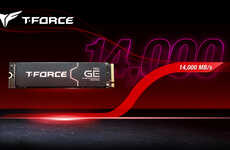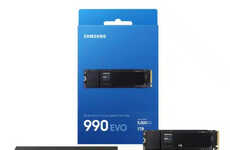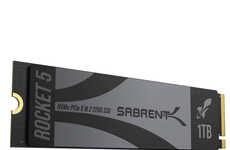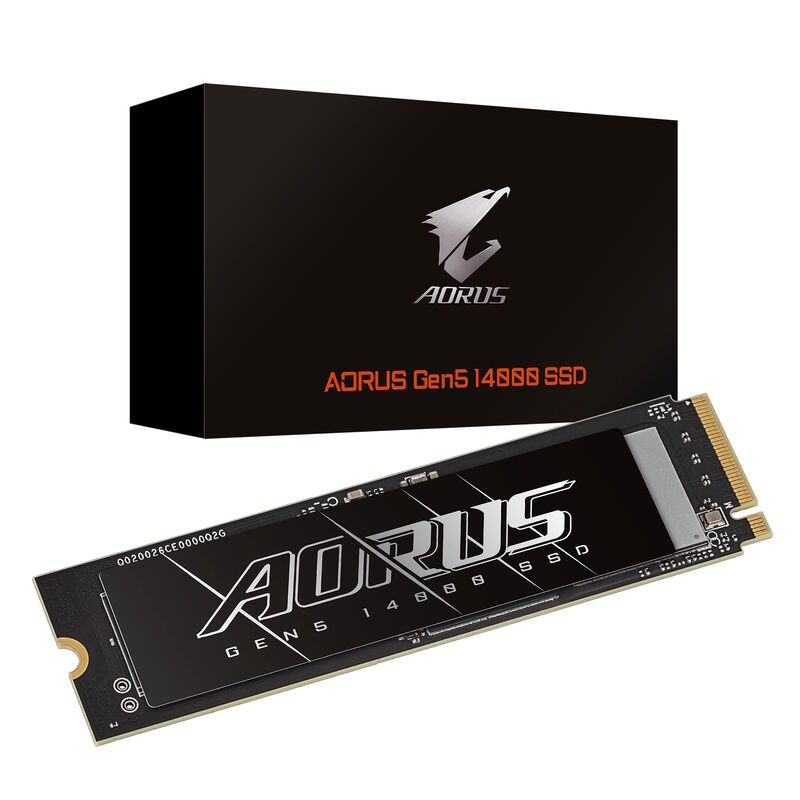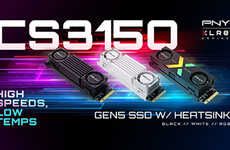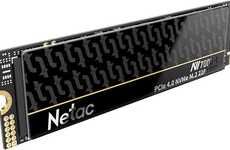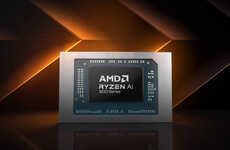
Gigabyte Released its Latest Gen 5 SSDs with 14,000mb/s Speeds
Colin Smith — June 18, 2024 — Tech
References: gigabyte & kitguru.net
The AORUS Gen5 14000 SSDs from Gigabyte represent a significant advancement in solid-state drive technology. Engineered with the PCIe Gen5.0 x4 controller Phison PS5026-E26 and equipped with the latest 232-layer 3D TLC NAND Flash, these SSDs offer exceptional speed and efficiency. They boast sequential read and write speeds of up to 13,600 MB/s and 10,200 MB/s respectively, catering to the high-performance needs of PC enthusiasts, gamers, and professionals in rendering fields. The SSDs come in an M.2 2280 form factor and support the NVMe 2.0 interface, ensuring compatibility with the latest motherboards that include a heatsink to maintain optimal performance levels.
Gigabyte has not yet released specific details for the AORUS Gen5 14000 SSDs. However, they are expected to be available in capacities of 1TB, 2TB, and 4TB, each accompanied by a 5-year manufacturer’s warranty. The absence of pricing information suggests that the product launch may be imminent, and potential buyers should monitor official Gigabyte channels for updates. It is also advisable to consider the necessity of a motherboard with an integrated heatsink when planning to purchase these SSDs, as they are essential for harnessing the full potential of the drives.
Image Credit: Gigabyte
Gigabyte has not yet released specific details for the AORUS Gen5 14000 SSDs. However, they are expected to be available in capacities of 1TB, 2TB, and 4TB, each accompanied by a 5-year manufacturer’s warranty. The absence of pricing information suggests that the product launch may be imminent, and potential buyers should monitor official Gigabyte channels for updates. It is also advisable to consider the necessity of a motherboard with an integrated heatsink when planning to purchase these SSDs, as they are essential for harnessing the full potential of the drives.
Image Credit: Gigabyte
Trend Themes
1. Pcie Gen5.0 Adoption - The integration of PCIe Gen5.0 x4 controllers in SSDs denotes a pivotal shift towards next-gen data transfer standards in consumer electronics.
2. 3D TLC NAND Flash Innovation - Utilizing 232-layer 3D TLC NAND Flash introduces massively increased storage densities and speeds, pushing the boundaries of current SSD technology.
3. Enhanced Cooling Solutions - The need for motherboards with integrated heatsinks to efficiently manage the heat generated by ultra-fast SSDs highlights the growing intersection of storage and thermal management technologies.
Industry Implications
1. Consumer Electronics - The consumer electronics market is rapidly evolving with ultra high-speed SSDs setting new benchmarks for device performance and user experience.
2. Gaming Hardware - Gaming hardware evolves with the advent of high-speed SSDs, drastically reducing loading times and enhancing overall in-game performance.
3. Professional Computing - Professions requiring high data processing speeds, such as 3D rendering and video editing, stand to gain significant efficiencies from next-gen SSD technologies.
4.7
Score
Popularity
Activity
Freshness


